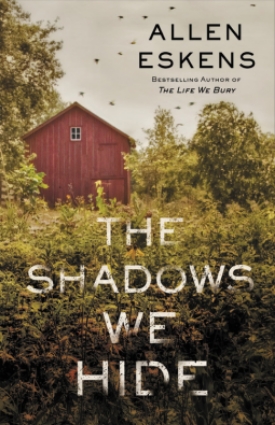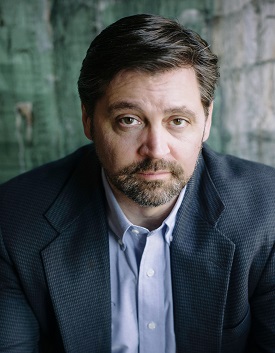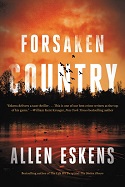 Synopsis:
Synopsis:
In the sequel to The Life We Bury, Joe Talbert investigates the murder of the father he never knew and reckons with his family’s past.
Joe Talbert, Jr. never met his father. Now a reporter for the Associated Press, based in Minneapolis, he stumbles upon a story about the murder of a man named Joseph Talbert in rural Caspen County, situated in southern Minnesota.
Curious as to whether the murder victim might have been his father, Joe travels to the small town of Buckley. None of the town’s residents have much to say about the dead man, except that he was a jerk whose death has brought them no sorrow. Joe discovers that his presumed father cheated his neighbors, threatened his daughter, and squandered his wife’s inheritance after she committed suicide. Shockingly, that inheritance may now pass to Joe.
As Joe searches for the truth about his parentage and the murder, he is mired in uncertainty abut his career and plagued by the history of his devastated relationship with his mother. They have not spoken or seen each other in five years. Not since Joe became the legal guardian of his autistic brother, Jeremy. Now their mother, Kathy, would love nothing more than to get back into her sons’ lives, but Joe has an obligation to protect Jeremy, as well as his own heart.
Joe must put together the missing pieces of his family history . . . before his quest for answers puts him in a grave of his own.
Review:

The beloved characters he introduced in The Life We Bury return in author Allen Eskens’ follow up, The Shadows We Hide.
As the story opens, Joe has been Jeremy’s guardian for five years. After Joe rescued Jeremy from their mother’s home where he was subjected to abuse by Kathy’s boyfriend, Larry, Jeremy never returned to that residence. He has lived with Joe and Lila, who is studying for the upcoming Bar examination, while Joe works as a reporter for the Associated Press. His recent story about an incident of domestic violence involving State Senator Todd Dobbins, based upon information obtained from an anonymous source, has netted a lawsuit in which Joe and the Associated Press have been named as defendants. Joe laments that a week earlier he and his boss, Allison, “discussed whether my article would be submitted for Pulitzer consideration. Now we were talking about the end of my career.”
The timing is somewhat fortuitous, though, because Allison gives Joe a press release about the murder of a man named Joe Talbert, along with a mug shot. Although his father has always meant “less than nothing” to Joe, at that moment, “the myth that was my father began to grow flesh and bones.” Because they agree that it is a good time for Joe to take a leave of absence — while the lawsuit plays out — Joe has time to dig into the dead man’s past and determine whether he was, in fact, Joe’s biological father.
Joe finds that Joseph “Toke” Talbert’s criminal history included punching Joe’s mother in the stomach while she was carrying him — because Kathy refused to have an abortion. He is compelled to travel to Buckley when he learns that Toke’s wife, Jeannie, took her own life just six months earlier, and they had a daughter, Angel. He realizes that his fourteen-year-old half-sister has, with Toke’s death, been rendered an orphan and is now all alone in the world. Lila protests that she simply cannot take time out from her studies to care for Jeremy alone, but Joe will not be deterred. “All of my life I had been pretending that I didn’t care if my father existed, but now that he might be dead, he became real to me. Learning about the death of this man had ripped open the rotted planks that I had used to hide him.” And one sad truth became apparent: “I wanted to know my father.”
Thus, Eskens takes readers along on Joe’s fast-paced journey to the truth that is hiding in a little Minnesota town called Buckley. With Jeremy in tow, he takes a room at the town’s only motel and gets acquainted with the bartender, Vicky, a native, who fills him in on much of the history between Toke and the town’s other residents. That includes the death of Vicky’s own mother and the lingering bitterness her father harbored for Toke, who inherited the adjacent farm that belonged to his late wife’s family. But Toke swindled others, and was generally despised by the people of Buckley, as well as his own brother, Charlie, who has arrived on the scene, as well. While Angel’s life hangs in the balance, Joe finds himself in one precarious situation after another as he explores old resentments and rivalries, and hires a quintessential small-town attorney, Bob Mullens, to help him navigate the legal complications.
Life has a funny way of working out sometimes. Sometimes home isn’t a place, it’s a person. At the end of the day, only one thing counts. Everything else is just shiny baubles and empty noise.
Eskens again spotlights the tender, protective relationship Joe has with his brother, Jeremy, as well as his complicated feelings for their mother, Kathy, in a compassionate, believable manner. Lila’s commitment to Joe is also tested as she struggles to maintain her focus on the culmination of her education and the need to pass the all-important Bar examination. And Eskens deftly keeps readers guessing about what really happened to Toke, as well as Jeannie and Angel, injecting shocking plot developments and legal twists at expertly-timed intervals. The closer Joe gets to finding out the truth, the more danger he finds himself in. Eskens again illustrates that Joe is resilient and clever as he calculates how to survive.
Ultimately, at its core, The Shadows We Hide is a touching exploration of the myriad ways in which family histories impact us in the present day and how our choices determine whether we will enjoy a different and, hopefully, better outcome than did those who went before us. It is a story about betrayals, redemption, forgiveness, and second chances.
For Joe, it is the telling of his journey to discover whether he is truly the “good guy” that everyone believes him to be. Self-doubt and feelings of not belonging have plagued Joe his entire life, in part because of his mother’s circumstances, but also because as a result of his father’s absence from his life. At the beginning of the story, his professional success is tenuous. He has long been waiting for “the world to someday figure out that I didn’t belong here, that I had risen far above my ditch-digging station, so I shouldn’t have been surprised when it all started falling apart.” But in Eskens’ skillful and empathetic hands, Joe grows into a man who has stared down and conquered the demons that have accompanied him his whole life. He has had an opportunity to “be a decent man” and made choices that dictate whether or not, in his own estimation, he is truly “a good man” who does the right thing when confronted with an opportunity to do so. And to discover that, as Bob Mullens counsels him, “Sometimes home isn’t a place, it’s a person.” Learning the truth along with Joe is a moving, entertaining, and satisfying experience that might cause Eskens’ readers to ask themselves many of the same questions that Joe does.








Comments are closed.